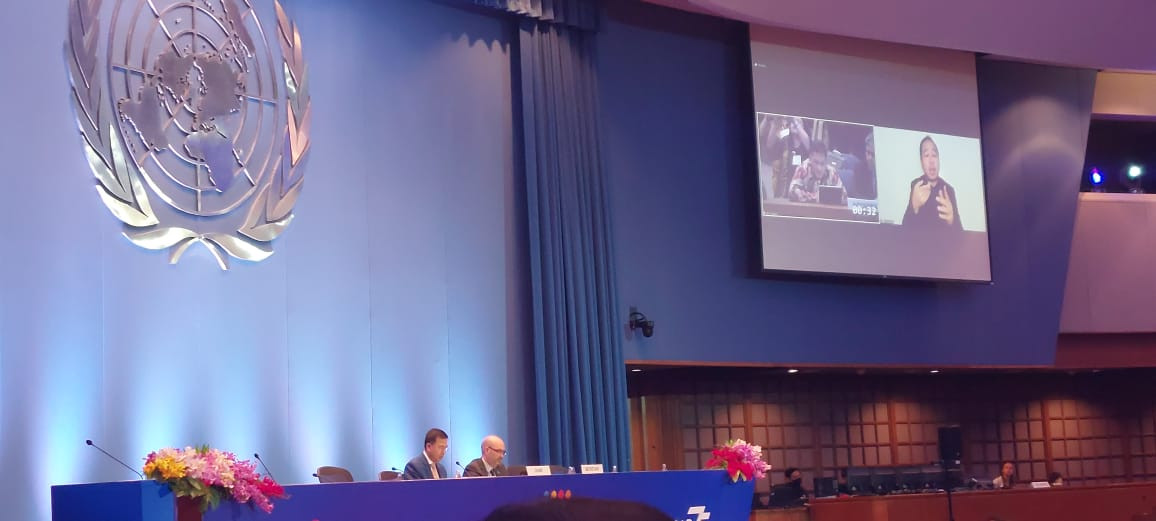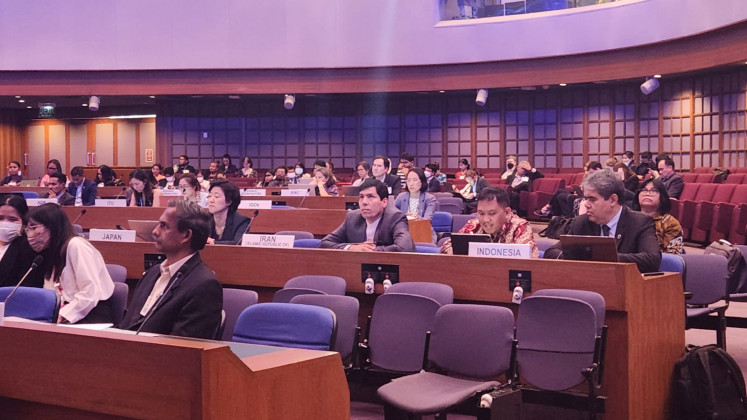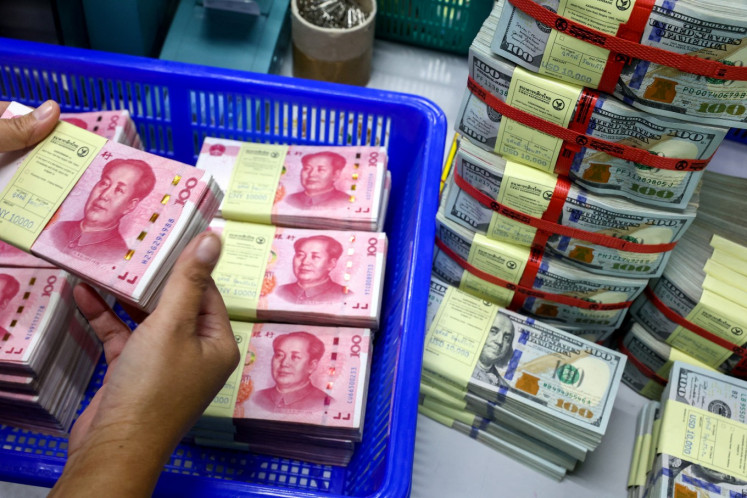Popular Reads
Top Results
Can't find what you're looking for?
View all search resultsPopular Reads
Top Results
Can't find what you're looking for?
View all search resultsIndicators track Indonesia’s successful journey to achieving SDGs
United Nations member countries adopted the Sustainable Development Goals (SDGs) to ensure peace and prosperity for all people as well as the planet for future generations.
Change text size
Gift Premium Articles
to Anyone
U
nited Nations member countries adopted the Sustainable Development Goals (SDGs) to ensure peace and prosperity for all people as well as the planet for future generations. The shared blueprint has also been integrated by the Indonesian government as the country rallies to put people and the planet over profit.
Ivanovich Agusta, the head of the Development and Information Agency at the Villages, Disadvantaged Regions and Transmigration Ministry, announced recently that the government had succeeded in this endeavor.
The exciting news that the country had met more than half of its SDG indicators was announced on Wednesday (3/29/2023) at the 10th Asia-Pacific Forum on Sustainable Development (APFSD) in Bangkok, Thailand, which was organized by the UN’s Economic and Social Commission for Asia and the Pacific (ESCAP).
Ivanovich addressed delegates from 53 Asia-Pacific countries and other guests at the session on Review of Regional Progress and Opportunities for Achieving the SDGs.
“Significant progress has been made on goals 6 and 11 regarding access to water and sanitation, handwashing facilities, safe public transport, water resources and green spaces,” he said. “We also experienced improvements in goals 7, 9 and 17, especially in energy efficiency, sustainable industry, reduction of carbon emissions, exports of high-tech industrial products and availability of data.”
Ivanovich added that the Indonesian government had relied heavily on data to make sure the targets had been met. The gathered data was the main tool for measuring the actions officials at the regional and village level had taken. It was therefore important for them to continue to improve data quality and data disaggregation on marginalized groups.
Indonesia’s National SDGs Secretariat was also continuing to work closely with local governments and other stakeholders in advancing SDGs implementation, he added. As of last December, 32 out of the country’s 38 total provinces had established province-level SDGs Action Plans, which were the basis for implementing the SDGs.
Ivanovich also noted that universities and the academic community had been making significant contributions in as many as 37 regions in partnership with the local administration. In addition, Indonesia’s international development partners were involved in promoting and facilitating SDGs implementation among local administrations.
“To ensure the achievement of all SDGs Goals by 2030, Indonesia has proposed an inclusive approach, in which we promote collaboration between all state and non-state actors, as well as relevant stakeholders at the national and regional levels,” Ivanovich told the assembled delegation.
“We look forward to enhancing this inclusive collaboration to advance the implementation of the SDGs in Asia and the Pacific.”
His statement echoes that of Abdul Halim Iskandar, the Minister of Villages, Disadvantaged Regions and Transmigration and the head of the Indonesian delegation to the 2023 APFSD, who proposed at the forum’s opening session for an inclusive approach to achieve the SDGs by 2030. (source: /business/2023/03/27/achieving-2030-sdgs-requires-inclusive-strategies-villages-minister.html).
This article was published in collaboration with Ministry of Village, Development of Disadvantaged Regions and Transmigration











